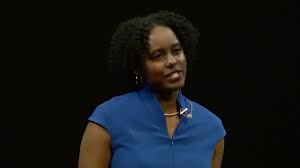Catarina Rivera’s TEDx talk, “Creating Inclusive Workplaces for All,” delivers a compelling and personal perspective on the urgency of inclusivity in today’s workplaces. Rivera, a disability advocate, emphasizes that inclusivity is not just about checking boxes—it’s about embedding respect, empathy, and awareness into a company’s very fabric. In this summary, we’ll explore Rivera’s key points on how to create workplaces that truly welcome everyone, why inclusivity matters, and how organizations can evolve to meet the needs of diverse employees.
Key Takeaways from Catarina Rivera’s Talk
Rivera’s talk brings fresh insights to a timely issue, underscoring that inclusivity is about more than policy; it’s about transforming workplace culture to accommodate diverse needs in a meaningful way. Here are the main points:
- Inclusivity Beyond Compliance: Rivera argues that inclusivity should transcend legal requirements and represent an authentic commitment to welcoming all employees.
- The Power of Lived Experience: She shares her own experiences as a person with a disability, demonstrating that personal stories can shift perspectives and foster greater understanding in workplaces.
- Small Changes, Big Impact: Rivera shows that often, relatively minor adjustments in workplace policies or physical environments can significantly improve accessibility and inclusivity.
Each of these points highlights an important truth: inclusivity cannot be passive or performative; it demands real change in mindset, policies, and practices.
Inclusivity Beyond Compliance: Embracing Empathy as a Core Value
True inclusivity is about more than meeting legal standards—it’s about fostering empathy and making sure every employee feels valued.
Rivera’s approach challenges the notion that inclusivity is a policy that companies can simply “implement.” Instead, she advocates for inclusivity as a core value that shapes a company’s DNA. This shift requires leaders to listen deeply to employees’ needs and create policies that prioritize empathy over mere compliance. When organizations go beyond minimum standards, they foster a culture of trust and openness, where employees feel safe to express their challenges and unique perspectives.
For companies looking to attract top talent, an authentic commitment to inclusivity is essential. Rivera’s insights remind us that, in today’s competitive job market, a culture of genuine inclusivity can be a key differentiator, attracting and retaining people from diverse backgrounds and experiences.
The Power of Lived Experience: Leveraging Personal Stories to Build Empathy
Lived experiences, like Rivera’s own, are powerful tools that can foster empathy and drive meaningful change.
Rivera’s personal story as a woman with a disability brings the conversation about inclusivity into sharp focus. By sharing her challenges, Rivera makes it clear that for many employees, workplace inclusivity is about feeling seen, respected, and valued. Leaders who embrace and share these kinds of personal experiences can help to humanize inclusivity efforts, fostering a workplace environment where everyone feels more connected and understood.
Empathy is crucial in building strong workplace relationships, especially in diverse teams. Personal stories offer a tangible way to cultivate empathy and break down misconceptions, leading to better support systems and more inclusive policies.
Small Changes, Big Impact: How Minor Adjustments Create Major Inclusivity Gains
Often, minor workplace adjustments can have a significant impact on inclusivity, making employees feel genuinely welcomed.
Rivera points out that many accessibility changes are neither complex nor costly but can drastically improve an employee’s experience. For example, offering flexible work hours, creating quiet spaces, or adding captions to videos can be transformative for employees with disabilities or different learning needs. Rivera’s focus on small, actionable steps makes inclusivity feel achievable and encourages companies to begin making changes, even if resources are limited.
Companies often hesitate to implement inclusivity measures, fearing costs or logistical challenges. Rivera’s approach makes it clear that inclusivity doesn’t have to be an all-or-nothing initiative. Small changes add up and can set the stage for broader, more systemic shifts toward inclusivity.
Conclusion: Shaping an Inclusive Future Requires Listening, Learning, and Small Steps
Catarina Rivera’s TEDx talk offers valuable insights for any organization seeking to make inclusivity a lived reality rather than a distant goal. Her message is clear: authentic inclusivity starts with empathy and small, achievable changes that resonate with employees’ lived experiences. By committing to Rivera’s vision, companies can create environments where all employees feel valued, heard, and supported.
For any business aiming to stand out in today’s rapidly evolving job market, building a truly inclusive workplace isn’t optional—it’s essential. Rivera’s talk challenges us to reflect on our practices and take actionable steps toward creating workplaces that serve everyone, not just a select few.





























